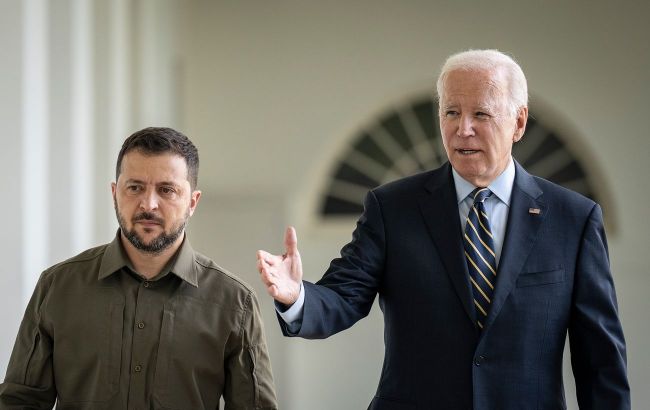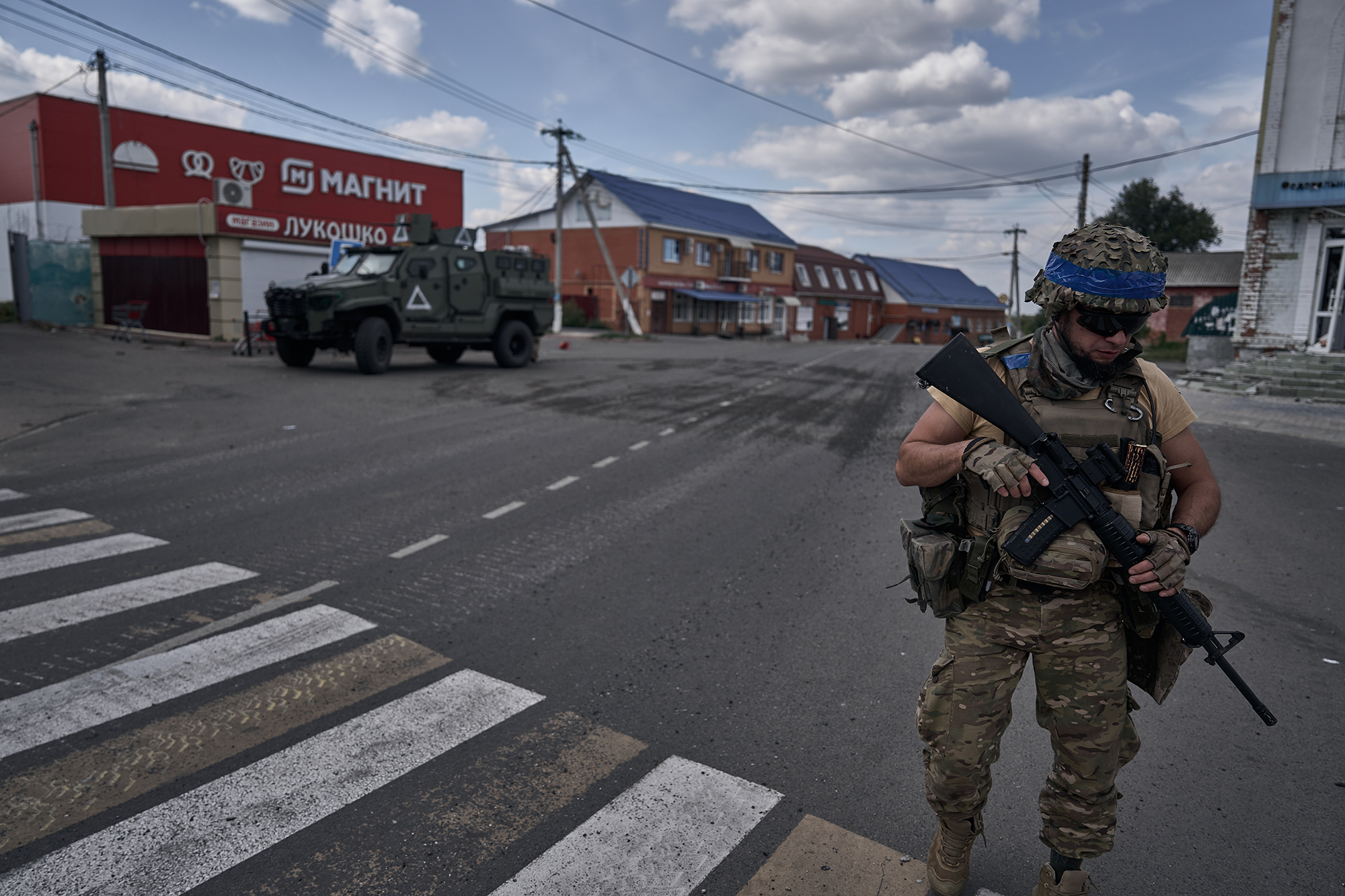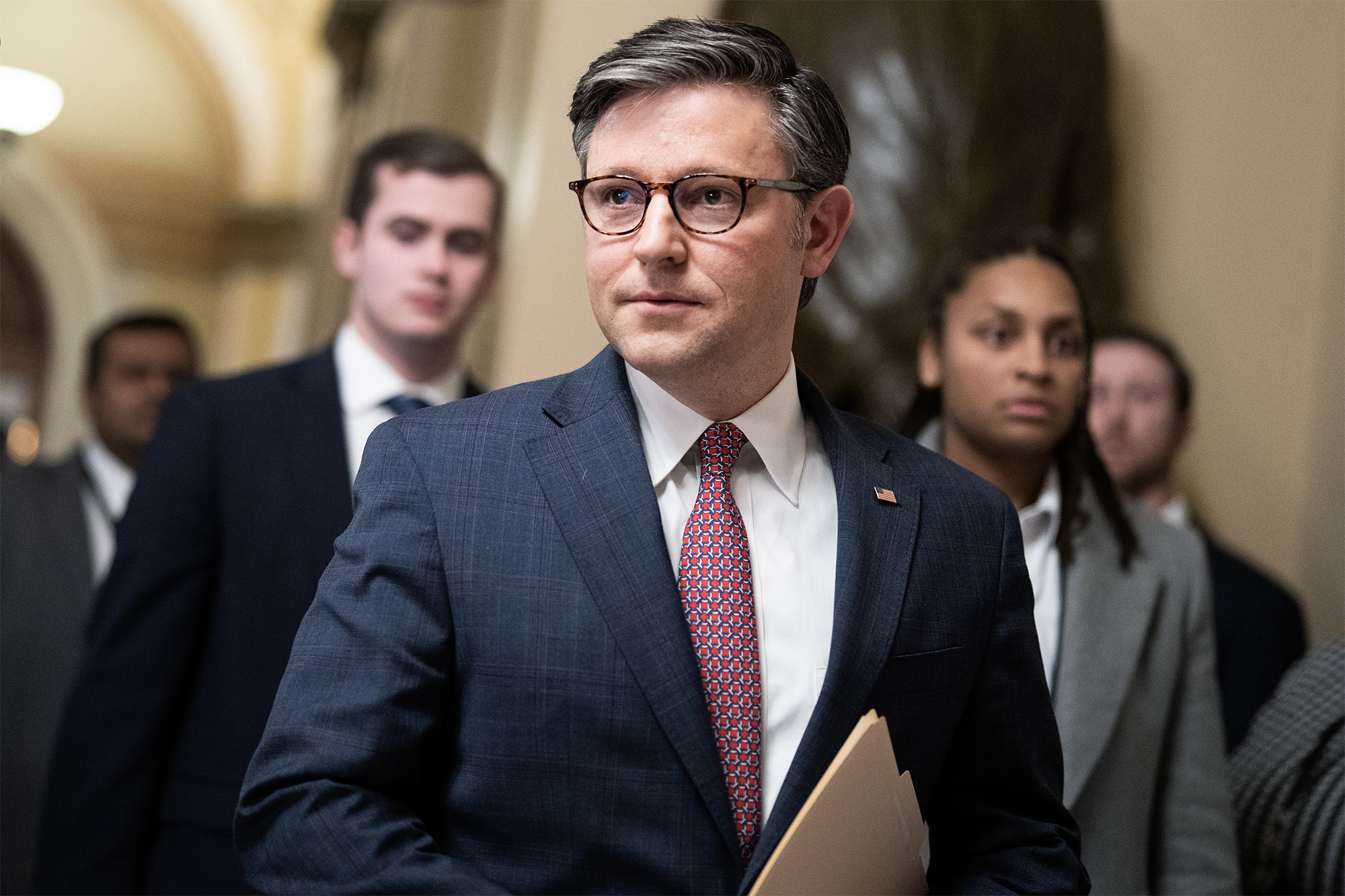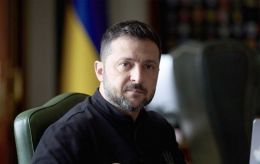Autumn of presidents. Challenges for Ukraine and Zelenskyy amid US election
 Volodymyr Zelenskyy and Joe Biden (photo: Getty Images)
Volodymyr Zelenskyy and Joe Biden (photo: Getty Images)
There are only a few months left in the term of US President Joe Biden. During this time, Ukraine has to resolve many issues: from authorizing long-range strikes against Russia to stable financing. Read more about the challenges for Ukraine that will be at the center of attention during President Volodymyr Zelenskyy's upcoming visit to the United States in the RBC-Ukraine article.
Contents
- Challenge 1. Victory plan for Ukraine and the United States
- Challenge 2. Lifting restrictions on long-range strikes against Russia
- Challenge 3. Maintaining US support in new fiscal year
The beginning of autumn promises to be surprisingly active for Ukraine, particularly on the foreign policy track. In the United States, President Joe Biden has been in office for the past few months. His administration has done a lot to help Ukraine, but perhaps more has not been done for fear of a Russian response.
On the other hand, as the Trump-Harris debate showed, the candidates to replace Biden are inconsistent in their rhetoric on support for Ukraine or do not have a clear position of their own. Moreover, the topic of Ukraine risks being further marginalized as the US presidential election approaches. Thus, Ukrainian diplomacy faces a whole range of non-trivial tasks for the fall. Some of them will be addressed during President Volodymyr Zelenskyy's visit to the United States.
Challenge 1. Victory plan for Ukraine and the United States
Recently, Zelenskyy has been regularly talking about a victory plan for Ukraine that he should show Joe Biden and pass on to Kamala Harris and Donald Trump, as Ukraine tries to maintain contacts with candidates from both parties, and the election result looks as unpredictable as possible.
One of the points of Zelenskyy's victory plan is the Ukrainian Armed Forces operation in the Kursk region. At the last Ramstein, Zelenskyy said that Ukraine controls 1,300 square kilometers of Russian territory and more than 100 settlements.
The Ukrainian leadership has previously said that the Kursk operation has several goals, including distracting Russian troops and improving Ukraine's negotiating position in the future. So far, however, the offensive in Kursk has had rather limited practical consequences. The Russian offensive on Pokrovsk continues, and according to the Commander-in-Chief, Oleksandr Syrskyi, Russia has moved its most capable units to this area.
It is not surprising that some influential American experts question the effect of the Kursk operation. For example, Michael Coffman and Rob Lee in an article for Foreign Affairs note that the goals of this offensive seem to be much more limited in scope than in previous Ukrainian offensives.
Unlike the Ukrainian Armed Forces' Kharkiv offensive in 2022, the Kursk offensive did not encircle or destroy significant Russian forces. According to Coffman and Lee, the Kursk operation did not correct the current material imbalance in the war. So far, Russia retains the advantage in manpower, equipment, and ammunition.
 Ukrainian military in Sudzha, Kursk region, Russia (photo: Getty Images)
Ukrainian military in Sudzha, Kursk region, Russia (photo: Getty Images)
There are other, opposing opinions among American analysts. But what is important is that skeptical assessments in very respectable media are read by those in Washington who make decisions. The question of what Ukraine's victory might look like was raised at the beginning of this year when the US Congress was fighting over the allocation of aid to Ukraine. In the new environment, this problem is arising again.
“The Biden administration has been talking quite calmly about supporting Ukraine, but they seem to be mostly allergic to the word 'victory' because Ukraine's victory means Russia's defeat and the US government is afraid of the consequences. Perhaps a detailed proposal from the Ukrainian side could ease their concerns a bit, but it's not certain. The same applies to Harris as Biden's vice president,” Uriel Epstein, executive director of the US nonprofit organization Renew Democracy Initiative, tells RBC-Ukraine.
Harris's position is worthy of special attention. Since her nomination for the US presidency, she has not made any specific statements about how she sees support for Ukraine. Even the debates did not clarify the situation. During her arguments with Trump, Harris spoke about the importance of NATO in deterring Russia and criticized her opponent. She said Putin would “eat you for lunch” if Trump tried to negotiate with the Russian dictator.
On the one hand, this shows that her presidential campaign has other priorities. On the other hand, it shows that her team will play an important role in developing her policy toward Ukraine.
“It's very interesting how Kamala Harris will contrast herself with President Biden on the issue of Ukraine. She may also want to appear more decisive than her predecessor. So, of course, these are all very political subtle nuances that Ukraine, of course, should understand, but in no way participate in them as some kind of subject, a player,” Olena Trehub, executive director of the Independent Anti-Corruption Commission (NAKO), who is involved in advocating for security assistance to Ukraine, tells RBC-Ukraine.
The same goes for Trump, especially given his complicated history with Zelenskyy. During the debate, a Republican candidate evaded a direct answer about Ukraine's victory in the confrontation with Russia. Instead, he said he wanted the war to end. Trump also reiterated that he would simply call the leaders of Ukraine and Russia, and after that, he said, the war would end.
On July 20, Zelenskyy and Trump had a phone conversation, the first direct contact of this kind in years. However, there was no further clarity on the content of Trump's plan for Ukraine.
“As for Trump, who knows what exactly is in his plan? What we do know is that Trump has been very willing to meet Russia halfway in the past, and his priority will be to push through a deal that he can put his name on, regardless of the terms. This does not bode well for Ukraine,” Uriel Epstein says.
According to preliminary information in the American media, in general terms, Trump's plan provided for de facto simultaneous blackmail of both Ukraine and Russia: if Ukraine refuses to come to the negotiating table, then arms supplies will be reduced. If Russia refuses to negotiate, then vice versa - Ukraine will be provided with more weapons. The other day, Trump voiced new ideas related to this topic. For example, he plans to reduce world oil prices to $40 per barrel by the end of the year and thus reduce the budget revenues of Russia.
The feasibility of such plans is questionable, if only because the fall in prices will also hit the US allies in the Middle East, including the Arab monarchies of the Persian Gulf. So in practice, Trump will have to make adjustments in any case.
At the same time, the debate showed that foreign policy is not the main topic in the US elections, but it is an important one. And among other foreign policy issues, the Ukrainian issue is one of the key ones.
“The topic of Ukraine will continue to be used in the election campaign. That is why we, as Ukraine, absolutely have the right to state what we expect from America, from any of the newly elected presidents, and what our plan is, how much help we need to stop Russia and win this war,” Olena Trehub tells RBC-Ukraine.
At the same time, given the poor awareness of the presidential candidates, the task of Ukraine, including Zelenskyy, during his visit to the United States is to explain to his counterparts what can be done in terms of helping Ukraine, what cannot be implemented in practice, what options Ukraine itself will not accept, and what benefits all this can bring to the United States.
Challenge 2. Lifting restrictions on long-range strikes against Russia
The Economist calls Zelenskyy's upcoming visit the last chance to convince Biden to allow US weapons to strike deep into Russia. This is indeed one of the top priorities, but not an easy task to accomplish. And so far, there is little reason for optimism.
“I'd like to be wrong, but there is no indication that President Biden will change his course,” Uriel Epstein told RBC-Ukraine back on September 9.
The Biden administration even postponed a request from the UK to allow Ukraine to use Storm Shadow missiles against targets inside Russia.
“Keep in mind that these are British weapons, but they are made with American parts. So if President Biden can't allow Ukraine to use long-range systems that aren't even physically made in the US, I'm not sure a parting gift of this nature is worth waiting for,” Epstein says.
However, unexpectedly, this topic received a new impetus this week when Iran, according to the US, transferred ballistic missiles to Russia for strikes on Ukraine.
Among other things, this further stimulates the United States to reconsider its position, since one way to prevent ballistic missile strikes is to destroy the facilities on the territory of Russia from which Iranian missiles are launched.
However, no decision has yet been made. On September 11, US Secretary of State Antony Blinken said in Kyiv that he would convey to Biden the arguments he heard in Kyiv in favor of lifting the ban. He also noted that Ukraine's needs are changing, as the battlefield itself is changing.
“And I have no doubt that we'll continue to do that as this evolves. Escalation is one of the factors we always consider but it's certainly not the only factor,” he adds.
 Storm Shadow missiles at an arms exhibition in the UAE (Photo: Getty Images)
Storm Shadow missiles at an arms exhibition in the UAE (Photo: Getty Images)
RBC-Ukraine's interlocutors in the Ukrainian diplomatic corps remain optimistic. One of the things they refer to is the legacy that the Biden administration will leave behind. Not all of the US president's initiatives have been completed during his term. Moreover, if Trump wins the election, many of them will be canceled altogether.
Biden began his term with a major foreign policy failure - the withdrawal of troops from Afghanistan, which essentially turned into a chaotic flight. Now the American leader has the opportunity to end his term on a high note. Importantly, this could help Kamala Harris in the elections.
“It is not yet clear what step Biden will take toward Ukraine before he leaves office. Will he visit Kyiv, for example, or will he authorize Ukraine to carry out long-range strikes, what will he do to leave his post with some more victorious chord,” Olena Trehub tells RBC-Ukraine.
As long as this uncertainty persists, there is room for diplomacy. According to Mykhailo Podolyak, an advisor to Ukraine's Presidential Office, Ukraine needs to focus on two components. The first is rational evidence that Russia will not stop in any case, as it realizes that there are no deterrents. The second component is emotional. It can be used to put pressure on political elites from voters. To do this, they need to be shown how civilians are being killed in Ukraine and the horrors that are taking place in the 21st century.
“Therefore, we need both a rational and an emotional component. We need our partners to finally realize through their societies what a horror it is to live during a war. And not a war of the military against the military, but a war of the military of one country against the civilian population of another,” Podolyak says in a commentary to RBC-Ukraine.
Challenge 3. Maintaining US support in new fiscal year
Finally, the third challenge is financial. On September 30, the US fiscal year ends. The problem is that not all the funds previously allocated to Ukraine have been used.
To carry over to the next fiscal year, the White House must submit a request for approval to Congress.
“There are high risks that we will lose the available funds of more than $5 billion that could have been used for military equipment because there are shortcomings on both the American and Ukrainian sides. There is a complete misunderstanding of what the aid will be in the new fiscal year, after the elections in America,” Trehub says.
 Speaker of the House of Representatives Mike Johnson (photo: Getty Images)
Speaker of the House of Representatives Mike Johnson (photo: Getty Images)
The Biden Administration is in urgent talks with Congress on this issue, Reuters reports. There are various options on the table, but in the end, the passage of this initiative through Congress depends on Trump's position. At the beginning of the year, he blocked a large aid package for Ukraine for four months with the help of loyal congressmen. Now the key task is to convince Trump and his team to at least not block the funds already allocated.
All in all, all three challenges force us to work with both political forces in the United States. At the same time, in the decisive phase of the presidential race, both candidates would like to play the Ukrainian card in their interests, which will take place during Zelenskyy's upcoming visit to the United States. So far, despite the tactical temptations to play along, Kyiv has maintained stressed neutrality, which is the only correct strategy.
Sources: Reuters, The Economist, Foreign Affairs, Uriel Epstein, Executive Director of the US non-profit organization Renew Democracy Initiative, Olena Trehub, Executive Director of the Independent Anti-Corruption Commission, and Mykhailo Podolyak, Advisor to the Office of the President of Ukraine.

